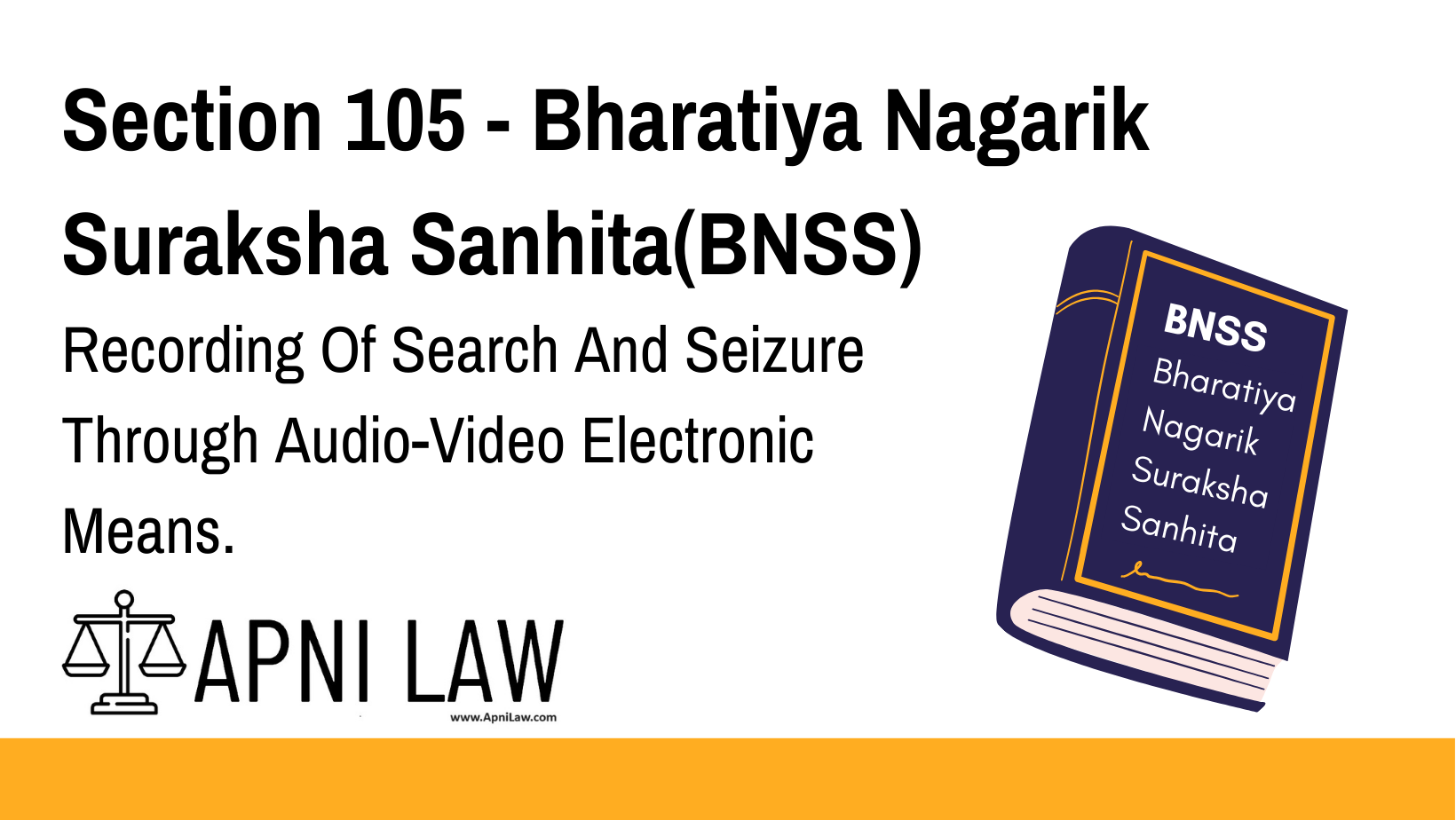Code:
The process of conducting search of a place or taking possession of any property,
article or thing under this Chapter or under section 185, including preparation of the list of
all things seized in the course of such search and seizure and signing of such list by
witnesses, shall be recorded through any audio-video electronic means preferably mobile
phone and the police officer shall without delay forward such recording to the District
Magistrate, Sub-divisional Magistrate or Judicial Magistrate of the first class
Explanation
Section 105 mandates the recording of the entire process of a search and seizure. This includes not only the physical search but also the creation of a list of all items seized and the signing of this list by witnesses. The provision emphasizes the use of audio-video electronic means, with mobile phones being the preferred tool, ensuring transparency and accountability. The police officer is required to promptly forward the recording to the appropriate magistrate for oversight.
Key Provisions:
- Recording the Process: The search process and the seizure of items must be recorded using audio-video technology, ideally with mobile phones.
- Seized Items List: A list of all items seized during the search must be prepared and signed by the witnesses.
- Forwarding to Authorities: The recording must be forwarded to the District Magistrate, Sub-divisional Magistrate, or Judicial Magistrate of the first class without delay.
Illustration
Example 1: Search and Seizure Recording
A police officer conducts a search and seizes several items from a suspect’s home. During the process, the officer records the search and seizure using a mobile phone. The officer then forwards the video recording and the list of seized items to the District Magistrate for review.
Common Questions and Answers
1. Why is it necessary to record the search and seizure process?
- Answer: Recording the process ensures transparency, accountability, and legal compliance, preventing potential disputes or abuse of power during the search and seizure process.
2. What happens if the recording is not forwarded to the magistrate?
- Answer: Failure to promptly forward the recording may lead to questions about the integrity of the search and seizure process, and could potentially undermine the validity of the evidence gathered.
3. Can the search be conducted without recording the process?
- Answer: No, recording is a mandatory requirement to ensure that the entire process is transparent and properly documented.
Conclusion
Section 105 of the BNSS enhances the transparency of searches and seizures by mandating the recording of these processes through audio-video means. This helps safeguard against misuse of authority and ensures that all actions are documented and available for judicial review.











